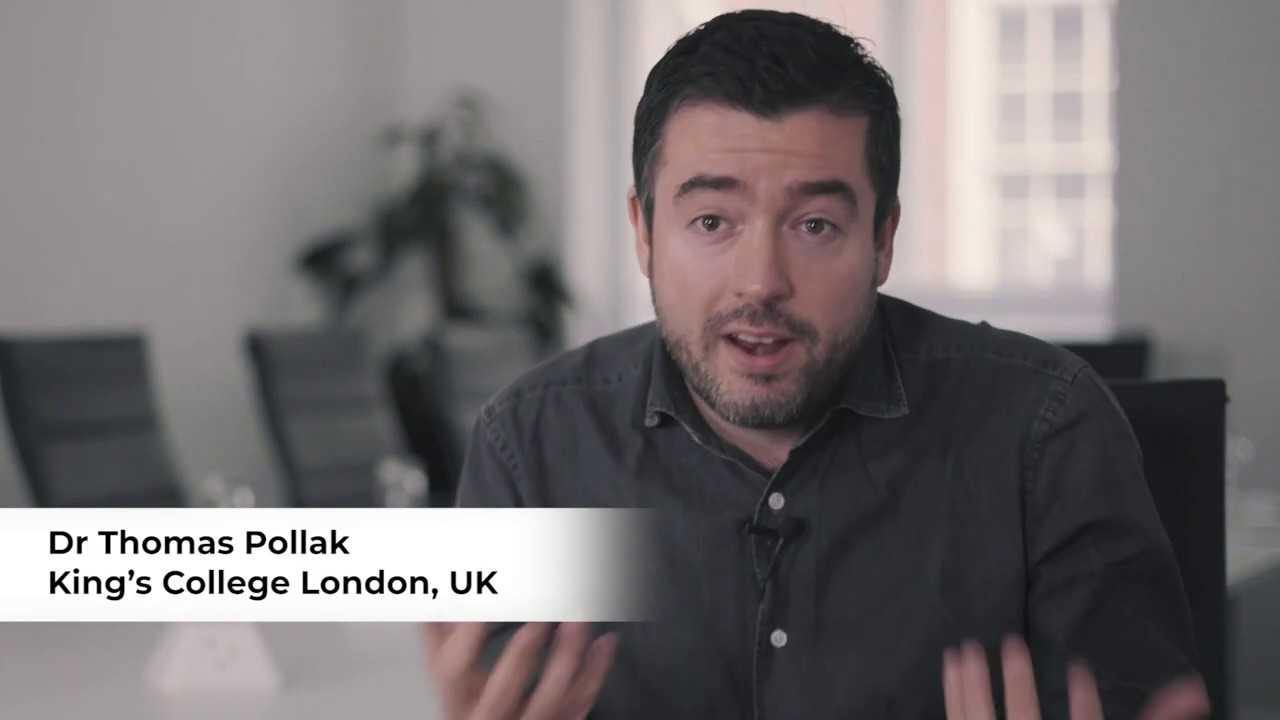A 2018 study of nearly half a million children found a stronger link between congenital blindness and a reduced risk of schizophrenia, which was further supported by a psychiatrist’s observation of no cases in his mental health facility.
For over 60 years, scientists worldwide have been exploring this mystery. They’ve studied past research, visited psychiatric hospitals, and checked organizations that help blind people, all in search of a case.
Tom Pollak, a psychiatrist and researcher at King’s College London, recalled searching his mental health facility after hearing about it, but he couldn’t find a single patient with congenital blindness who had schizophrenia.
In 2018, a study led by a researcher named Vera Morgan at the University of Western Australia looked at nearly half a million children born between 1980 and 2001 and strengthened this negative association. Pollak remembered checking in the mental health facility where he works after learning about it; he too was unable to find a single patient with congenital blindness who had schizophrenia.

These findings suggest that being born blind might protect a person from developing schizophrenia. This is surprising because congenital blindness is often caused by infections, brain injuries, or genetic mutations, which are all linked to a higher risk of psychotic disorders.
Even more strangely, losing vision later in life is connected to a higher risk of schizophrenia and psychotic symptoms. Blocking someone’s vision for just a few days can even lead to hallucinations in healthy people. Recent studies have also shown stronger links between vision problems and schizophrenia, with vision issues sometimes appearing before any psychotic symptoms and even predicting who might develop the disorder. (Source)
There’s a theory that being born blind, or having certain types of blindness, might protect people from some of the mental problems that vision loss can cause later in life. Many researchers have different ideas about why this happens. Some think it’s because the brain of a blind person changes in a way that helps avoid these issues, while others believe that vision plays a big part in how we understand the world, and problems happen when this process goes wrong. Some scientists believe that the connection between vision and mental health problems like schizophrenia may help us understand the disorder better. It could give us clues on why it happens, who might get it, and how to treat it.
In a 2004 study, 13 people who could see were blindfolded for 96 hours. Ten of them reported seeing things that weren’t real after just a day or two. One woman saw a green face with big eyes, even though she was standing in front of a mirror she couldn’t see. Another man started seeing fake obstacles in his way, making it hard for him to walk. By the end, he saw marble buildings and cartoon-like figures.
We’ve known for a long time that people who lose their sight can sometimes see things that aren’t real. This is known as Charles Bonnet syndrome, first described in 1760. People who have this syndrome don’t have mental illnesses, but people with schizophrenia also have vision problems. They may have issues like strange eye movements, problems with the retina, and unusual blinking. These vision issues often appear before the first signs of schizophrenia.
However, people born blind don’t seem to have this same problem. Researchers Pollak and Phil Corlett from Yale University think they know why. They believe the brain’s job is to predict the world around us, and that this idea might help explain why blindness protects people from some of these issues.
This idea about the brain suggests that instead of seeing the world as it is in real time, our brains create a model of what’s out there. The brain predicts and simulates what we experience, then checks the predictions against what is actually happening. If there’s a mistake, it adjusts the model based on the error. The accuracy of past predictions is important because it helps shape how we view the world and correct new mistakes.
Vision plays an important role in this process. It provides a lot of information and helps connect other senses, like sound and touch. If someone’s vision is off, it can make it harder for them to predict and correct things, making their brain’s model of the world less accurate. When people have vision problems, the brain works harder to make guesses about what’s going on. If you couldn’t see at all, you wouldn’t build up false ideas of the world, but it could also make thinking more difficult later on.
This may help researchers understand why people with schizophrenia often have problems with vision and sensory processing early in life.
In a 2006 study by Elaine Walker at Emory University, she looked at home videos of children who were later diagnosed with schizophrenia. Many of the children seemed clumsier, often dropping a ball during catch, stumbling, or tilting to one side. (Source)
This suggests that they had trouble sensing and interacting with the world. When children of mothers with schizophrenia show problems with their vision as they grow up, it can help predict whether they will develop schizophrenia later. Children with schizophrenia, whether or not they have a family history of the condition, often have more eye problems than children who develop other mental health issues.
A person born blind doesn’t get visual information to help them understand the world, so they use their other senses to create a model of it. According to Pollak and Corlett, this model could be more stable. (Source1)(Source2)
Pollak said, “What we’re trying to understand is that blind people might have a different and more stable representation of the world inside their minds, which might help protect them from the kinds of mistakes and false beliefs seen in schizophrenia.”
While hallucinations, delusions, and strange behavior are well-known in schizophrenia, psychiatrist Steve Silverstein from the University of Rochester believes that these symptoms are more like side effects, not the cause of the disease. He thinks schizophrenia may actually be caused by problems with how we think, like issues with perception, attention, memory, language, or learning.
Read also:
- This Man from MIT Said Said the Brain Is Like Logic Gates, and God’s Ideas Are Mathematical Logic
- Man from Silicon Valley Confirms His Company Established the First-Ever Communication Between People in Dreams
- This Man Proved Time Is an Illusion: He Spent 6 Months in an Underground Cave and Adjusted to a 48-Hour Sleep Cycle
Around 2010, Silverstein read Blind Vision, a book by scientists Zaira Cattaneo and Tomaso Vecchi about how blind people think and experience the world. He was surprised to see that many of the ways the brain adapts to blindness are the exact opposite of what happens in schizophrenia.
Silverstein agrees with Pollak and Corlett’s idea about the brain, but thinks the answer may be bigger. He believes that being blind could help the brain in ways that schizophrenia weakens it, with prediction being just one example of how blind brains are stronger.
People with schizophrenia have trouble focusing their attention, according to Silverstein, while people who are born blind are actually better at focusing than those who can see. Blind people are also better at hearing different sounds and figuring out where sounds come from. On the other hand, people with schizophrenia struggle with hearing clearly and processing speech properly. Not being able to understand where sounds are coming from can make someone think their voice is coming from another place, leading to delusions.
There’s a lot more: Blind people are quicker to react to sound and touch compared to sighted people; people with schizophrenia have slower reactions. Blind people also have better memory, while schizophrenia can cause memory problems. Blind people don’t experience the rubber hand illusion, where someone feels like a fake hand is part of their body. This may suggest that blind people have a more stable sense of their body. (Source)
Around 2010, Silverstein read a book called Blind Vision by Zaira Cattaneo and Tomaso Vecchi, which explored the abilities of blind people. He was surprised at how many of the abilities that blind people develop seemed to be the opposite of what happens in schizophrenia.
Silverstein agrees with Pollak and Corlett’s prediction brain theory, but believes the answer may be broader. He thinks that the way blindness helps the brain may also explain why schizophrenia weakens the brain in similar ways.
The exact reason why being born blind may protect against schizophrenia isn’t fully understood. It might be because blind people learn to predict the world better, their brains are more connected, or they rely on other senses more.
There’s still a lot to figure out. For example, not all congenital blindness is the same. Cortical blindness happens because of a problem in the part of the brain that processes vision, while peripheral blindness is caused by an issue with the eyes, but the brain is still fine. While no one has been found with both cortical blindness and schizophrenia, there might be a few people born with peripheral blindness who later developed schizophrenia. However, these cases are old or involve other health issues, so it’s hard to say for sure.
With schizophrenia and blindness, Silverstein said we’re not there yet, and probably not close. That said, he doesn’t think that we should ignore it.
“At this point, I don’t think I’d go so far as to say it’s promising,” Silverstein said. “The word I’d use is intriguing. “In some ways, this is one of the most interesting observations in a long time in schizophrenia research. Because it’s the only thing that seems to be protective against schizophrenia. I think there’s something here and this should be looked into much more.”








